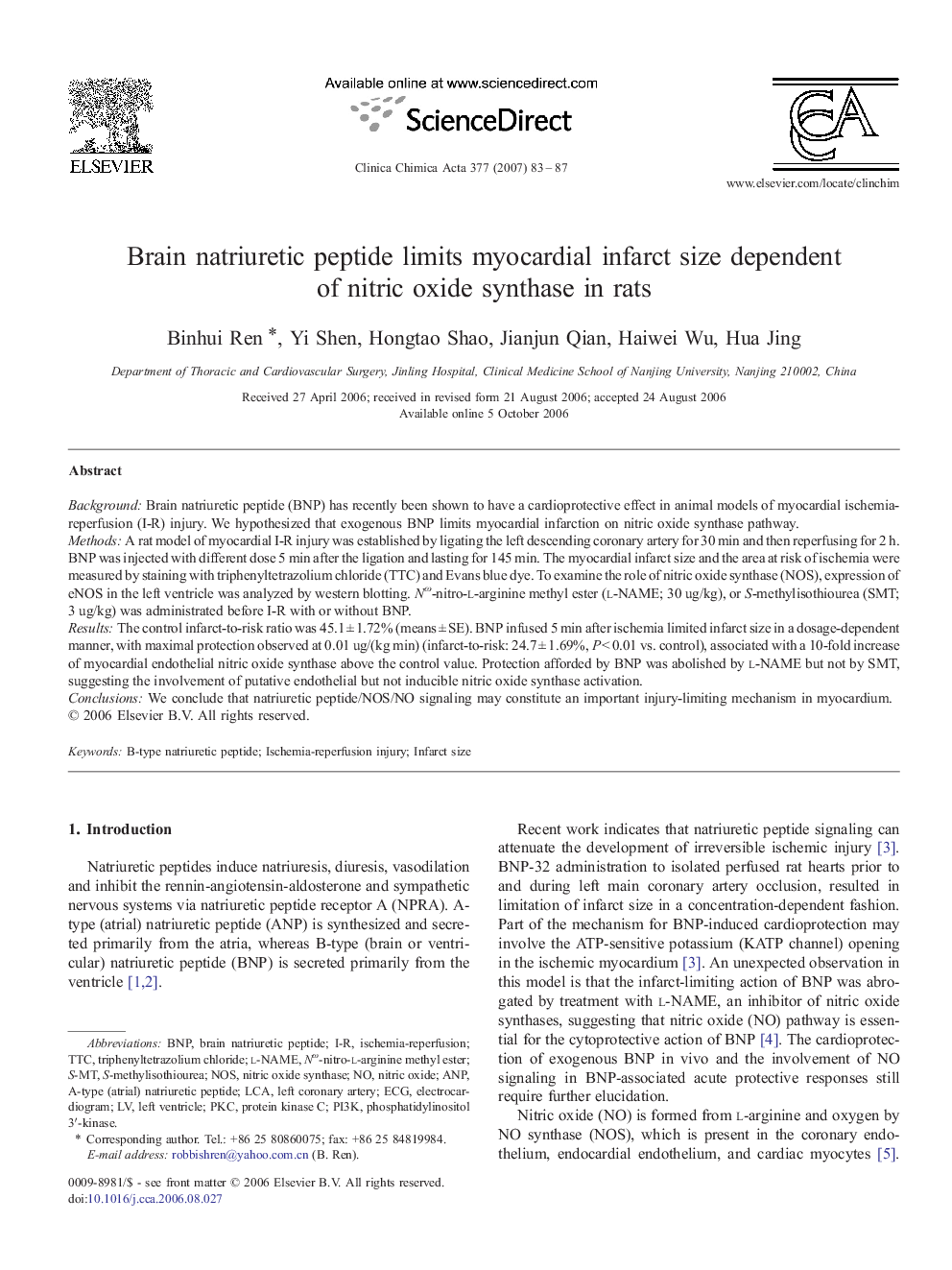| Article ID | Journal | Published Year | Pages | File Type |
|---|---|---|---|---|
| 1967684 | Clinica Chimica Acta | 2007 | 5 Pages |
BackgroundBrain natriuretic peptide (BNP) has recently been shown to have a cardioprotective effect in animal models of myocardial ischemia-reperfusion (I-R) injury. We hypothesized that exogenous BNP limits myocardial infarction on nitric oxide synthase pathway.MethodsA rat model of myocardial I-R injury was established by ligating the left descending coronary artery for 30 min and then reperfusing for 2 h. BNP was injected with different dose 5 min after the ligation and lasting for 145 min. The myocardial infarct size and the area at risk of ischemia were measured by staining with triphenyltetrazolium chloride (TTC) and Evans blue dye. To examine the role of nitric oxide synthase (NOS), expression of eNOS in the left ventricle was analyzed by western blotting. Nω-nitro-l-arginine methyl ester (l-NAME; 30 ug/kg), or S-methylisothiourea (SMT; 3 ug/kg) was administrated before I-R with or without BNP.ResultsThe control infarct-to-risk ratio was 45.1 ± 1.72% (means ± SE). BNP infused 5 min after ischemia limited infarct size in a dosage-dependent manner, with maximal protection observed at 0.01 ug/(kg min) (infarct-to-risk: 24.7 ± 1.69%, P < 0.01 vs. control), associated with a 10-fold increase of myocardial endothelial nitric oxide synthase above the control value. Protection afforded by BNP was abolished by l-NAME but not by SMT, suggesting the involvement of putative endothelial but not inducible nitric oxide synthase activation.ConclusionsWe conclude that natriuretic peptide/NOS/NO signaling may constitute an important injury-limiting mechanism in myocardium.
